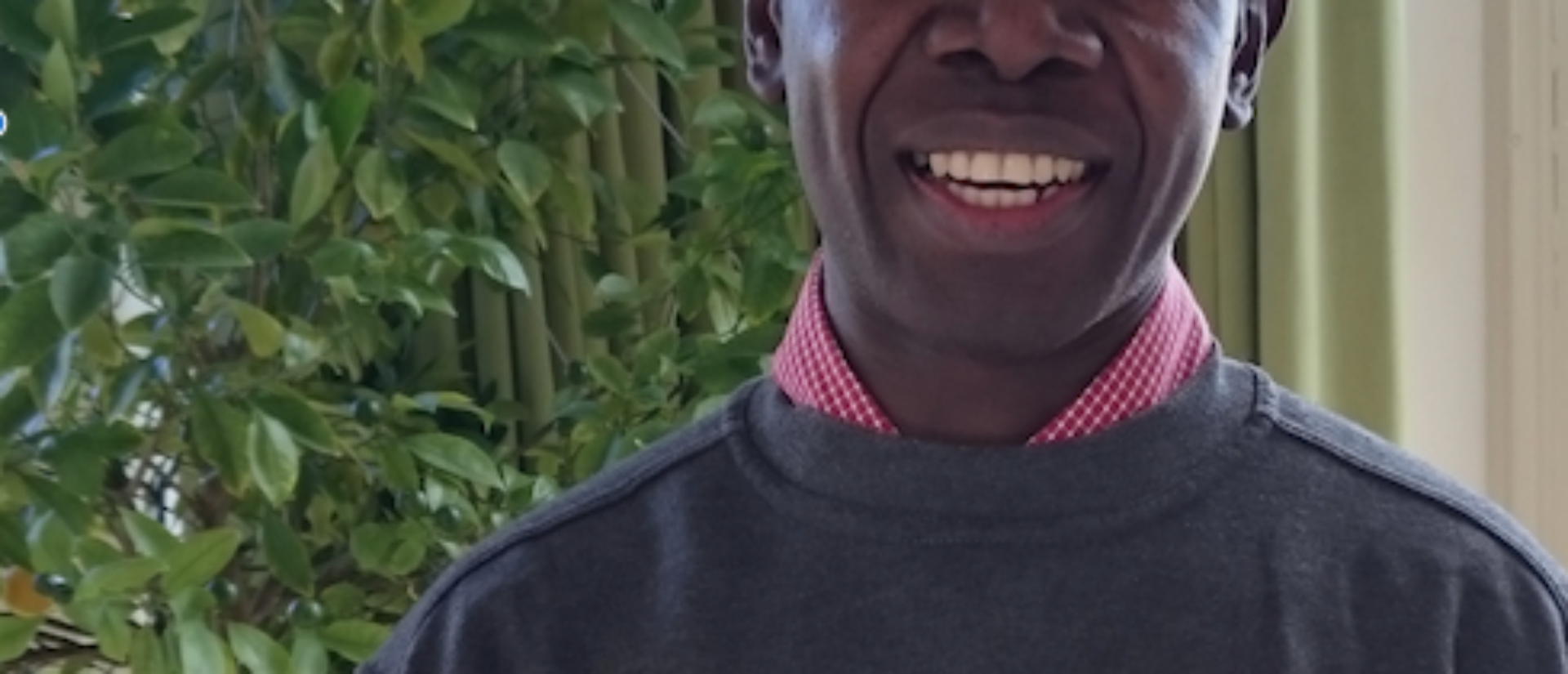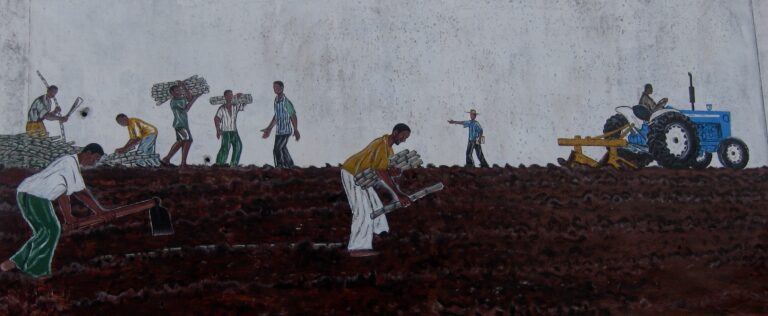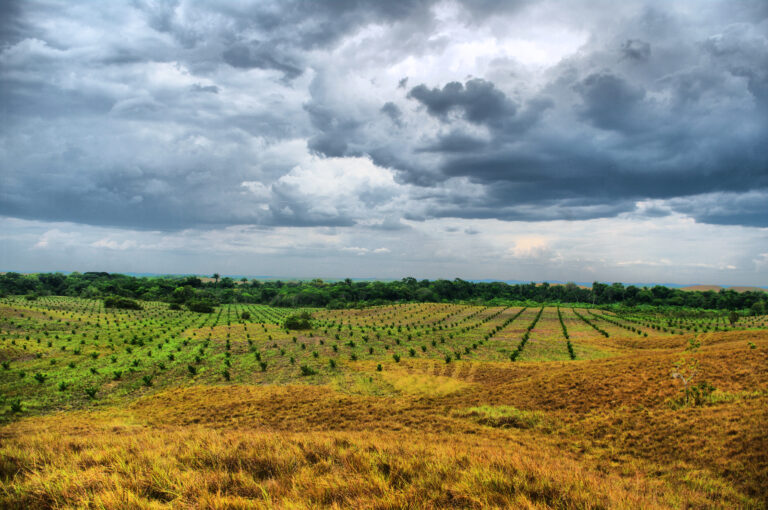
“Everyone in Malawi has a right to development”
Paul Kachusa, programme manager at CARER, visited Amsterdam to present a recent research into land and labour rights across the sugar industry in Malawi. Its findings are collected in CARER and SOMO’s new publication called Bittersweet: sustainability issues in the sugar cane supply chain. Paul Kachusa spoke about his work and his experience doing joint research with SOMO.
The Malawi Centre for Advice, Research and education on Rights (CARER) and SOMO have been working together since 2005. CARER is a non-governmental organisation in Malawi with a mission to promote and protect human rights, and to ensure that these rights are respected at all levels of society in its country. Founded in 1994, CARER focuses on civic education, legal advice, advocacy, penal reform, monitoring and research. It has thirty employees and around ten paralegal centres across Malawi, where citizens are provided with legal advice.
Advocacy for human rights
Paul Kachusa: “Section 30 of the Republican Constitution of Malawi states that everyone has a right to development. This is what we stand for. CARER does advocacy for human rights, such as good labour conditions, and looks at laws and regulations that infringe on people’s rights. On the one hand we engage with parliamentarians and government officials, but we also teach vulnerable people how to engage with the government. Eighty per cent of Malawi’s population lives in rural areas, they are our main target group. As part of the Democracy Consolidation Programme, funded by the United Nations Development Programme (UNDP), we give presentations and advice to vulnerable groups. We identify people that can become Community Base Facilitators or Educators (CBFs or CBEs) and educate them in human rights, governance and law so that they can subsequently teach people in their own community. This is sustainable development, because CARER might run out of funds one day, but the communities can then rely on themselves.”
Cooperation CARER & SOMO
CARER and SOMO have previously worked together on two reports, which focused on labour conditions in the tea and tobacco industry in Malawi. Paul Kachusa explains how they work together:
“CARER collects data by doing field work in Malawi. We travel to plantations to talk to employers and employees. Working with SOMO has taught us to be more professional researchers. SOMO has also provided us with information on human rights violations that we were previously unaware of, as well as new ways to engage with governments.”
“A highlight for me was the moment when we had gathered stakeholders from the tea and tobacco industry to present the findings from our previous publication”, says Paul Kachusa. “Representatives from the industries, trade unions, the government and civil society were all present, and our presentation was followed by a heated debate. Government and union representatives wanted to know why the issues we reported were happening, while people from the industry, of course, denied everything and defended themselves. The fact that passions ran so high gave us a sense of recognition and the feeling that we had achieved a breakthrough. We have seen changes in labour conditions for the better since then.”
Sugar industry in Malawi
CARER and SOMO have just finalised a new report – Bittersweet – about sustainability issues in the sugar industry, which includes a case study on land rights and labour rights issues in the Malawian sugar industry. The research focuses on Illovo Sugar (Malawi) Limited, a subsidiary of UK-headquartered Associated British Foods (ABF), and the country’s sole producer of sugar. Sugar is one of the three most important export crops for Malawi, but it is also associated with several labour rights, human rights and community rights violations. CARER’s research highlights occupational safety and health issues that affect sugar workers, as well as precarious employment and anti-union tactics. In addition, communities around Illovo sugar plantations have accused the company of grabbing their ancestral land, which they have been using for subsistence agriculture.
Martje Theuws, SOMO researcher: “A considerable share of Illovo’s sugar exports goes to the European Union. While CARER collected data about adverse labour rights and human rights impacts of the sugar industry in Malawi, SOMO looked into policies of European sugar-using companies that might address such issues.”
Challenges
Like any NGO in Malawi, CARER is confronted with many problems, not least the recurring challenge of finding sufficient funds. The programme manager elaborates:
“You ask me why we don’t have a website? The simple truth is: we don’t have funds for one. We had one for two years, but we ran out of funding. All our funds are for specific projects and at the moment, none of them include a website.”
Over the years, CARER has received funding from many different organisations, including Oxfam, the United Nations Development Programme (UNDP), ActionAid, the United States Agency for International Development (USAID) and SOMO.
“However, what is most difficult for me is when workers ask me when their situation will actually change, especially when they haven’t seen short term results. Even the measuring of our results is difficult; we do a lot of cross-checking, but predicting when something will change is next to impossible.”
The ultimate goal
When asked what his ultimate goal is, Paul Kachusa says: “Labour issues in Malawi should not just be an academic exercise for us. I am very proud of what we are doing right now and I enjoy my work very much. But we should actually change something. It would be an ultimate goal to make that happen.”
Do you need more information?
-

Sanne van der Wal
Senior Researcher
Partners
-
CARER – Malawi Centre for Advice, Research and Education on Rights
Related content
-
Malawi Tea Research Project Published on:Posted in category:Publication
-
Garment Production in Malawi Published on:Posted in category:Publication
-

-


